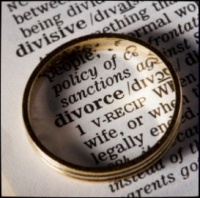I’d like to propose a discussion on the merits of the following idea, regardless of whether you agree with the general subject one way or the other. Let me explain:
Andrew Sullivan raises a provocative point by lambasting the Archdiocese of Washington over its decision to suspend its foster care services rather than comply with the city’s new gay marriage law. His point, in essence:
“A simple parallel: does the Washington diocese’s charities employ any people who have been civilly divorced and are now re-married under DC law? If so, how are these individuals less offensive to the teachings of the Church on the institution of marriage than a member of a gay couple provided civil marriage licenses?
“Catholic doctrine is very clear: a remarried person is not remarried in the eyes of the Church, and for the Church to employ such a person would be to recognize a civil marriage that violates one of its core principles. “
Obviously, Sullivan is a leading proponent of gay marriage, and has been for years. But he brings up what seems, at least to me, a good question: Is there a double standard when the church would (presumably) include spousal benefits for a divorced employee’s spouse, but wouldn’t include spousal benefits for a gay or lesbian employee?
Or, put another way, is the church unfairly singling out gay couples, but not divorced couples? Would the church suspend its foster care program if the city mandated that it provide spousal benefits for divorced employees?
I’m not interested in rehashing the entire gay marriage debate, but the divorce wrinkle seems to be a new one. Thoughts?





